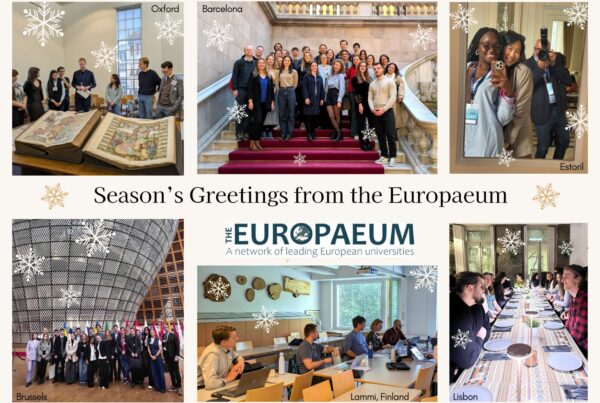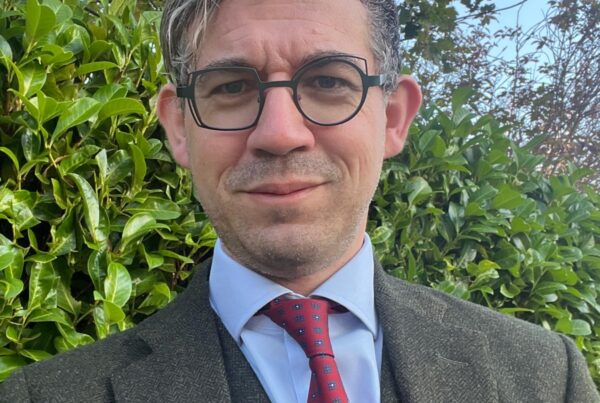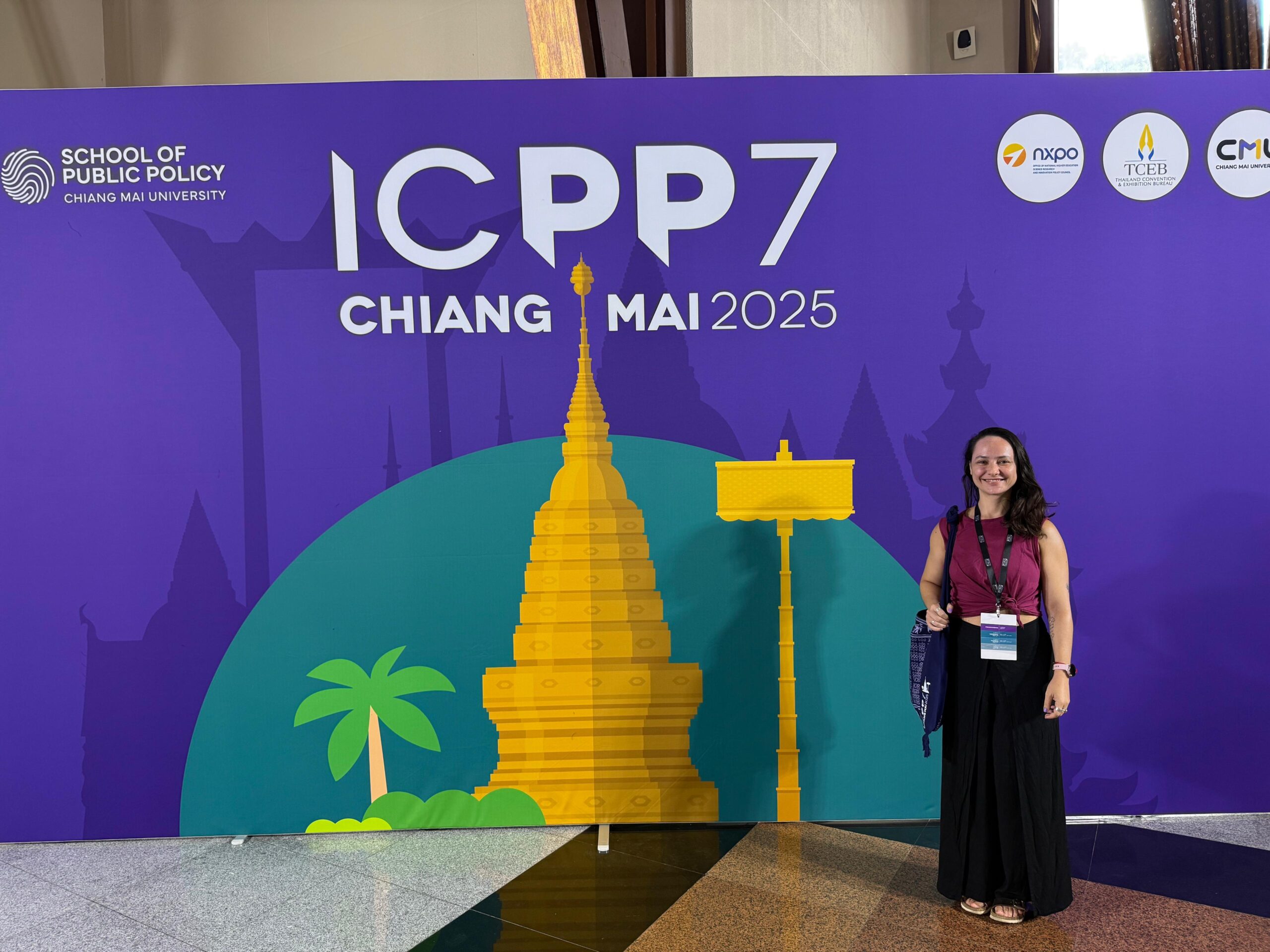
Find out about the variety and breadth of research that the Europaeum Scholars have presented at prestigious international conferences this summer.
From Athens to Chiang Mai, the Europaeum Scholars have showcased their PhD research at Europe’s flagship gatherings in international relations, political science, EU studies, history, economics and AI.
We are also very proud to report that our former Scholar and Trustee, Laura received the Best Thesis Prize 2025 at the University Association of Contemporary European Studies Annual Conference in Liverpool for her PhD thesis, Power of Experts in the EU: Birth of the Troika and Resilience of the EMU Paradigm in the European Debt Crisis of 2010.
Join us on a tour showcasing the amazing research of our Scholars.
Athens and Portsmouth
Adam Kluge (Oxford) attended the British Society of Criminology Annual Meeting, 2-4 July in Portsmouth, England and the European Society of Criminology Annual Meeting, 3-6 September in Athens, Greece.
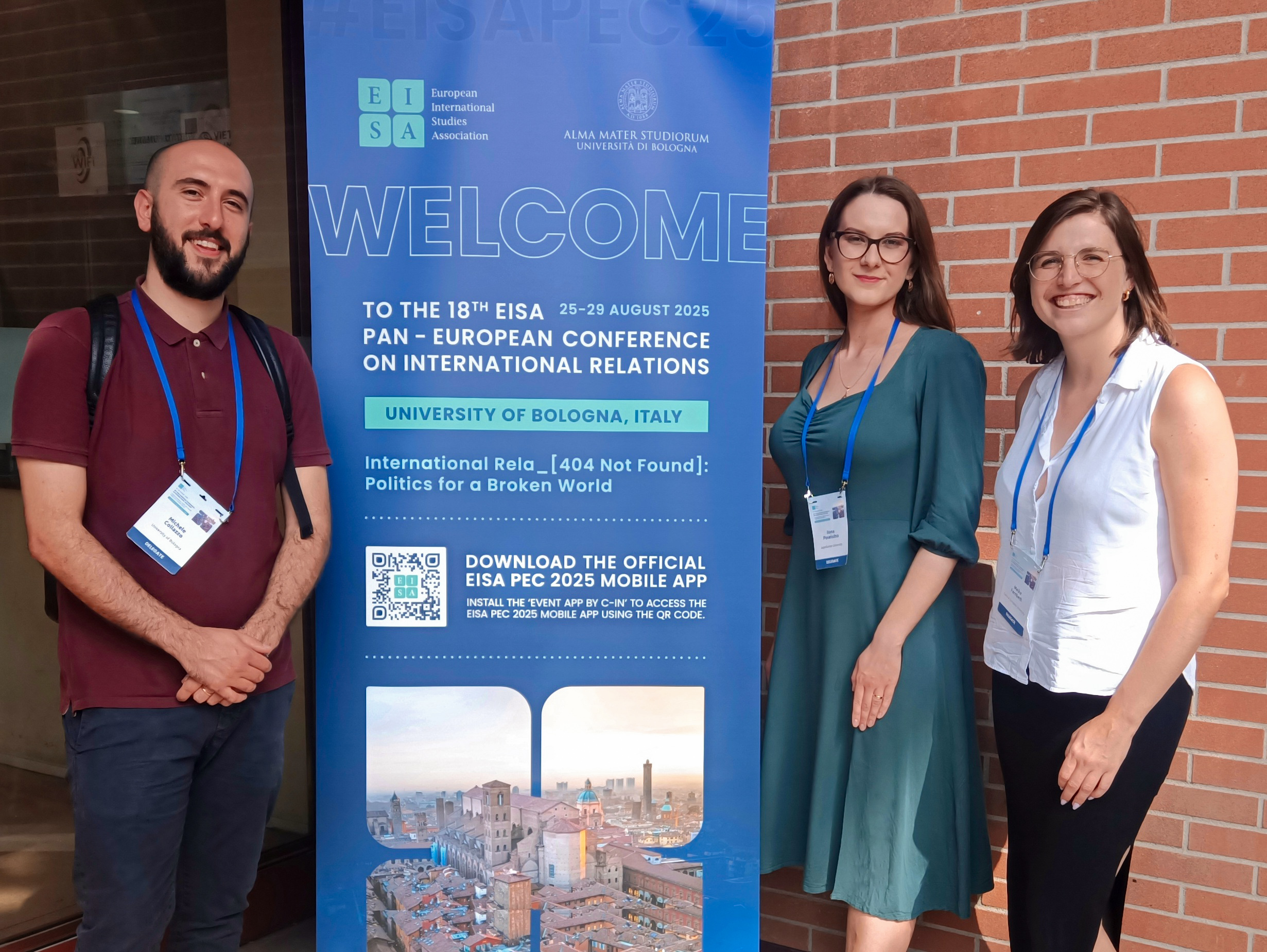
Europaeum Scholars, Michele Collazzo (Bologna), Ilona Poselużna (Jagiellonian) and Meike Fernbach (CEU)
Bologna
At the 18th Pan-European Conference on International Relations in Bologna, Meike Fernbach (CEU) discussed how white women shaped German coloniality and presented the paper, Purity, Innocence, and the Politics of Whiteness: How White Women Shaped German Coloniality.
At the same conference, Michele Collazzo (Bologna) presented on decentering knowledge in EU-Africa relations: Decentering Knowledge in EU-Africa Relations: The Role of European Union Delegations in Fostering Regional Perspectives.
Ilona Poselużna (Jagiellonian) delivered two papers – one on how EU policymakers address the radical uncertainty associated with AI (Confronting Radical Uncertainty: Protean Power and the EU’s AI Act Amidst Geopolitical Tensions) and another on the contested meanings of sovereignty in the digital age (Rethinking Sovereignty in the Digital Age: Ontological Insights from the EU’s AI Policy).
Cologne and Mannheim
Ömer Sahin (UPF) attended and presented a paper at the 2025 Annual Conference of the European Consortium of Sociological Research (ECSR) in Cologne. This year’s theme was demography and social inequality, which was particularly relevant to Ömer’s research, which focuses on labour market inequalities of different people, such as women vs. men, or senior workers vs new graduates and their risk of over-education. Later this month, he will be presenting his paper at the OECD Programme for the International Assessment of Adult Competencies (PIAAC) conference in Mannheim. This is connected to his research as he uses the PIAAC data of OECD for his research.
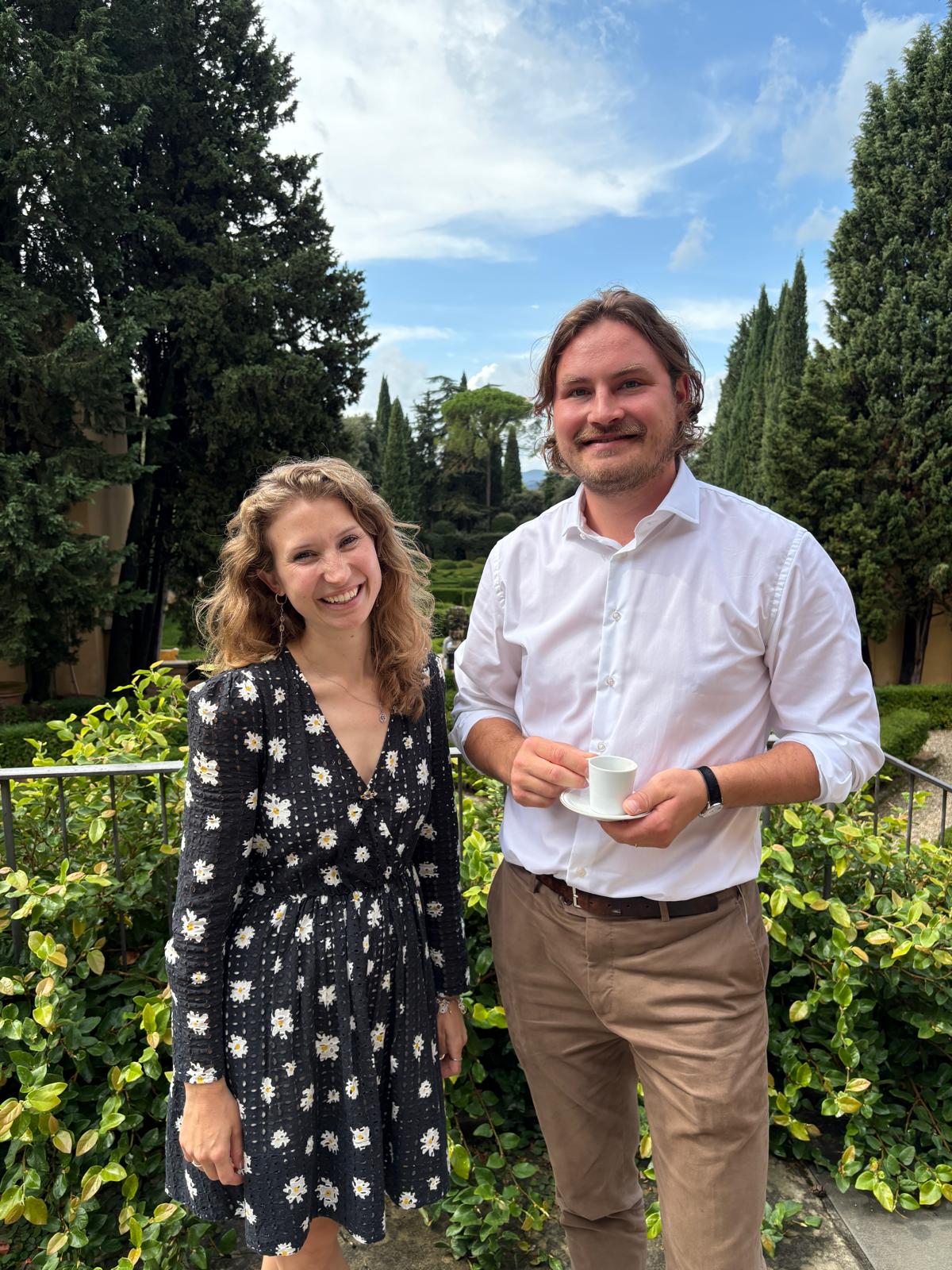
Europaeum Scholars, Frieda Ottman (LMU Munich) and Topi Juga (Helsinki)
Florence
Elsewhere in Europe, at the European University Institute’s Annual Graduate Conference on the History of European Integration in Florence, Frieda Ottmann (LMU Munich) showed how water pollution evolved from a Cold War instrument of East–West rapprochement into an economic tool and, ultimately, a vehicle for European integration. Her paper was entitled Environmental Diplomacy and Geopolitical Realities: Navigating East-West Relations in a Transforming Cold War Europe.
Topi Juga (Helsinki) discussed the development of EU’s Common Foreign and Security policy and Finland’s push for crisis management in the 1996 Intergovernmental Conference and presented the paper, Forming a pragmatic and cooperative Member State – Finland in the 1996 Intergovernmental Conference.
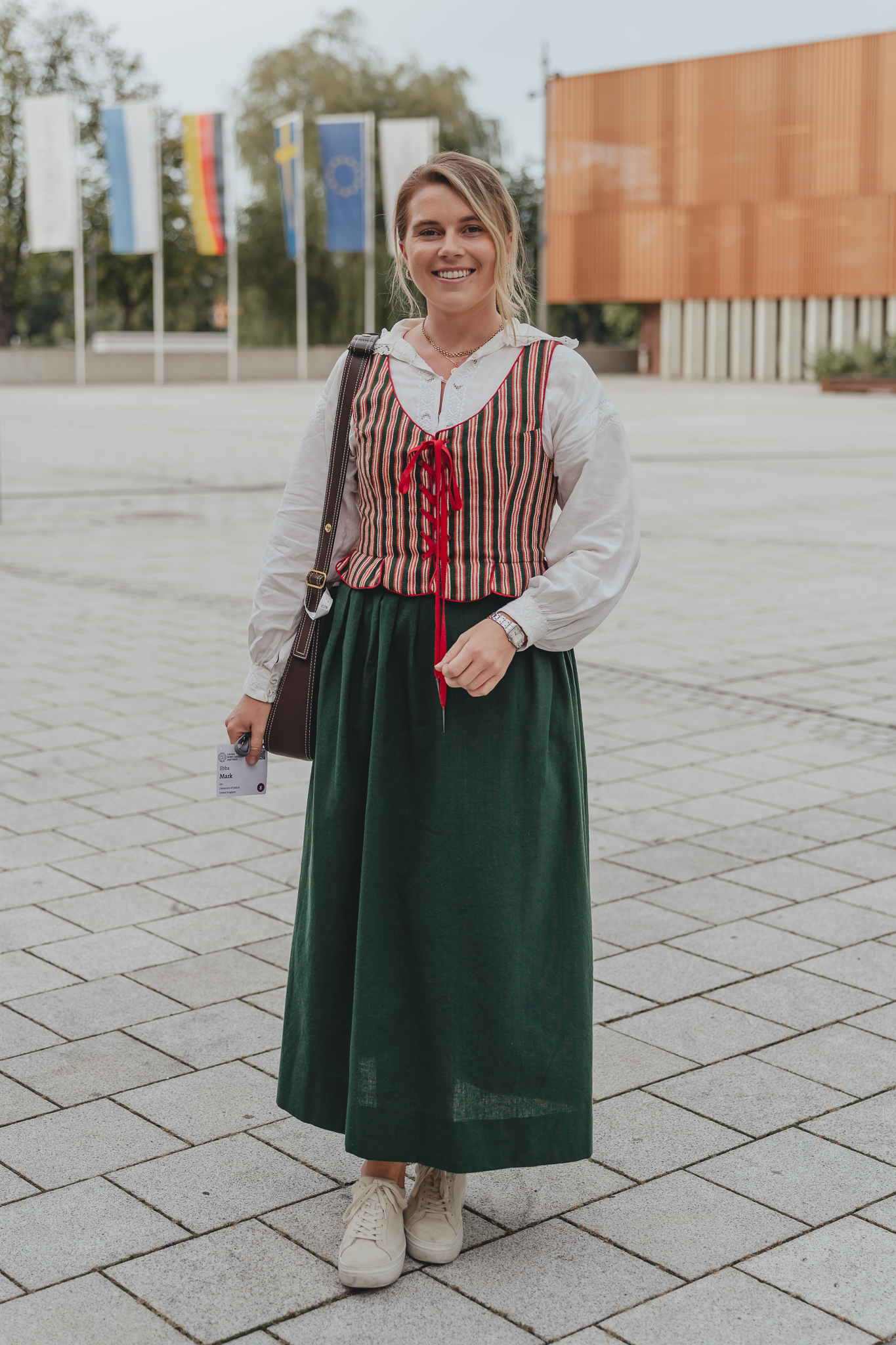
Europaeum Scholar, Ebba Mark (Oxford)
Lindau
Ebba Mark (Oxford) was selected as one of 250 young scientists to attend the 8th Lindau Nobel Meeting in Economic Sciences alongside 20 Economics Laureates including Simon Johnson, Joseph Stiglitz, and Christopher Pissarides.
Liverpool
Ilona Poselużna (Jagiellonian) and Laura Nordström (Helsinki), a Europaeum Scholar from our first cohort, also participated in the University Association of Contemporary European Studies Annual Conference (UACES) in Liverpool.
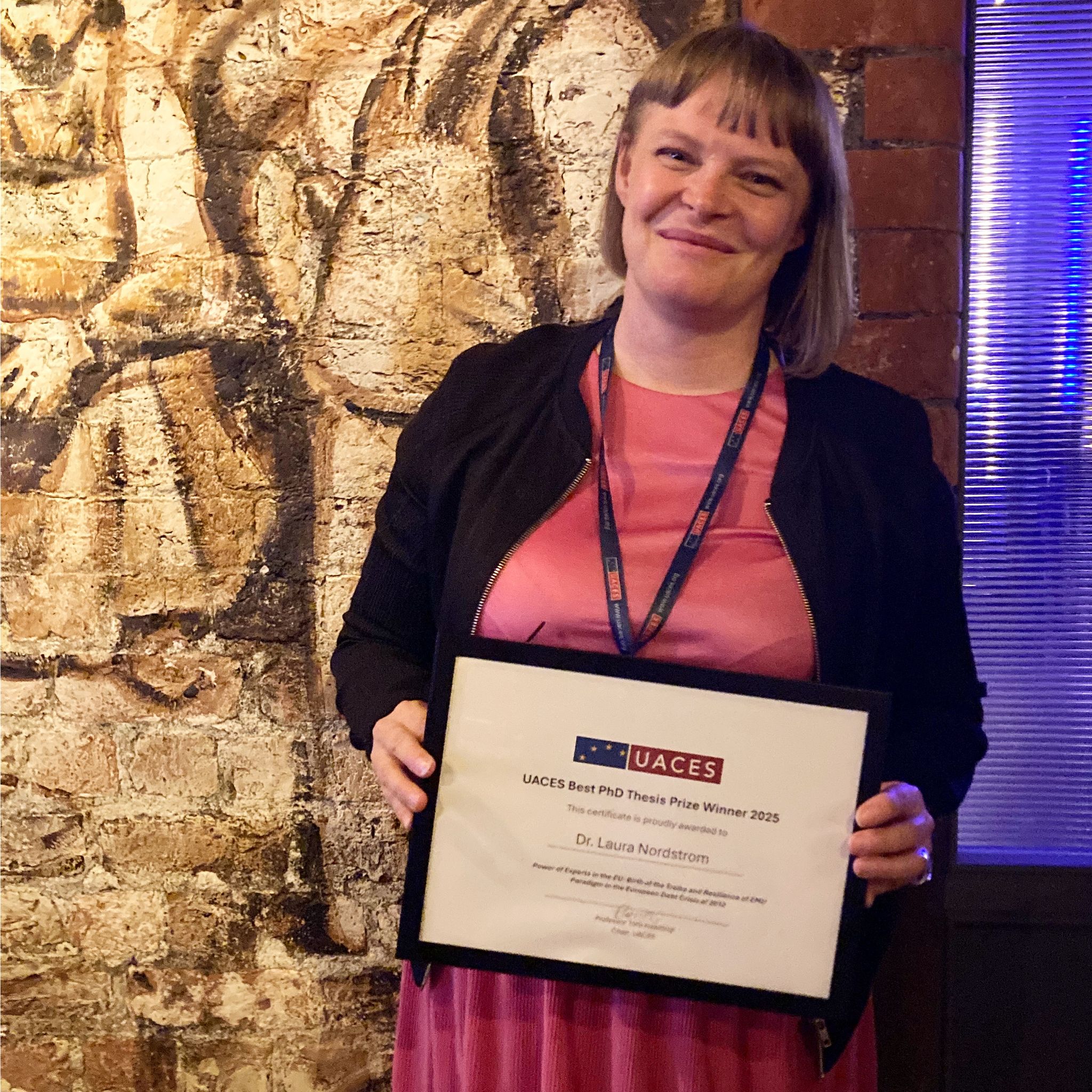
Europaeum Scholar alumna and former Europaeum Trustee, Laura Nordström (Helsinki)
As mentioned above, at this event, Laura received the UACES Best Thesis Prize 2025 for her PhD thesis. Many congratulations to Laura!
Commenting about her attendance at this event, current Scholar, Ilona said:
“At such venues, which bring together hundreds of Scholars from diverse research traditions, clarity is crucial. The Europaeum’s public-speaking training helped me break the ice and present confidently, ensuring the core contribution landed and sparked debate on AI and digital sovereignty. Research involves doubt and contestation, but even our doubts must be communicated clearly.”
Norrköping
In July, Dylan Thurgood (Oxford) presented a project dissecting what makes AI-generated articles persuasive at IC2S2 (International Conference for Computational Social Science) in Norrköping, Sweden. The project was entitled Assessing the role of emotions in the persuasiveness of AI-written articles about climate change.
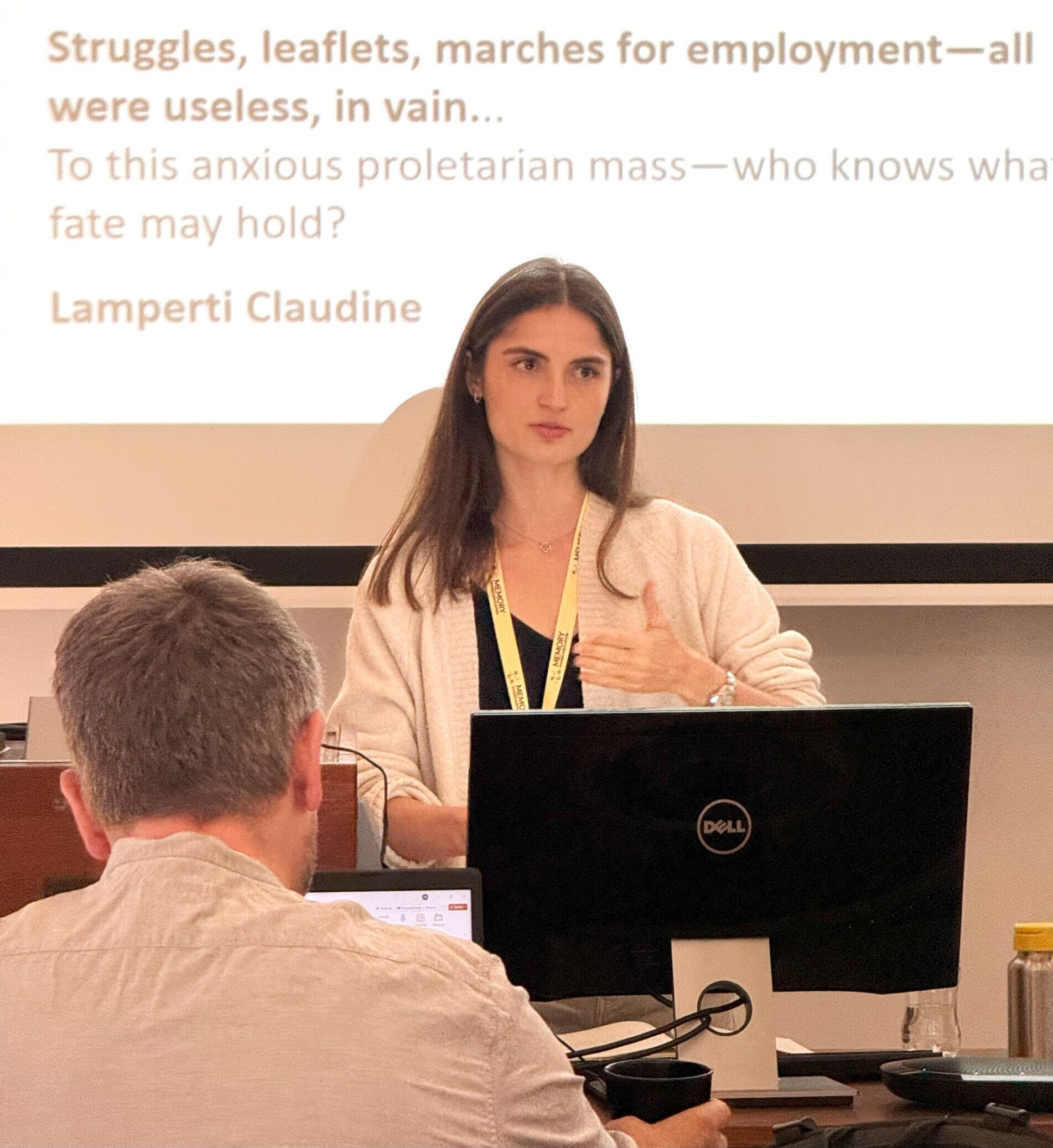
Europaeum Scholar, Zoe Konsbruck (Luxembourg)
Prague and Bonn
Zoe Konsbruck (Luxembourg) recently attended the Annual Memory Studies Association (MSA) Conference in Prague, 14-18 July. The theme, “Beyond Crises: Resilience and (In)stability” explored how societies remember and respond to crises. She presented a paper on the memory of economic crises in Luxembourg and Belgium. While Luxembourg reframed the steel crisis of the 1970s–80s as a success story tied to the rise of finance, Belgium continues to view the closure of its steelworks as a lasting loss.
In mid-September, she is attending the Historikertag, Germany’s largest history conference in Bonn and will present on how power relations shifted in Luxembourg in the 1970s–80s, especially the transformation of trade unions. More broadly, the conference will examine how power is exercised, contested, and represented across different contexts and historical periods.[/vc_column_text]
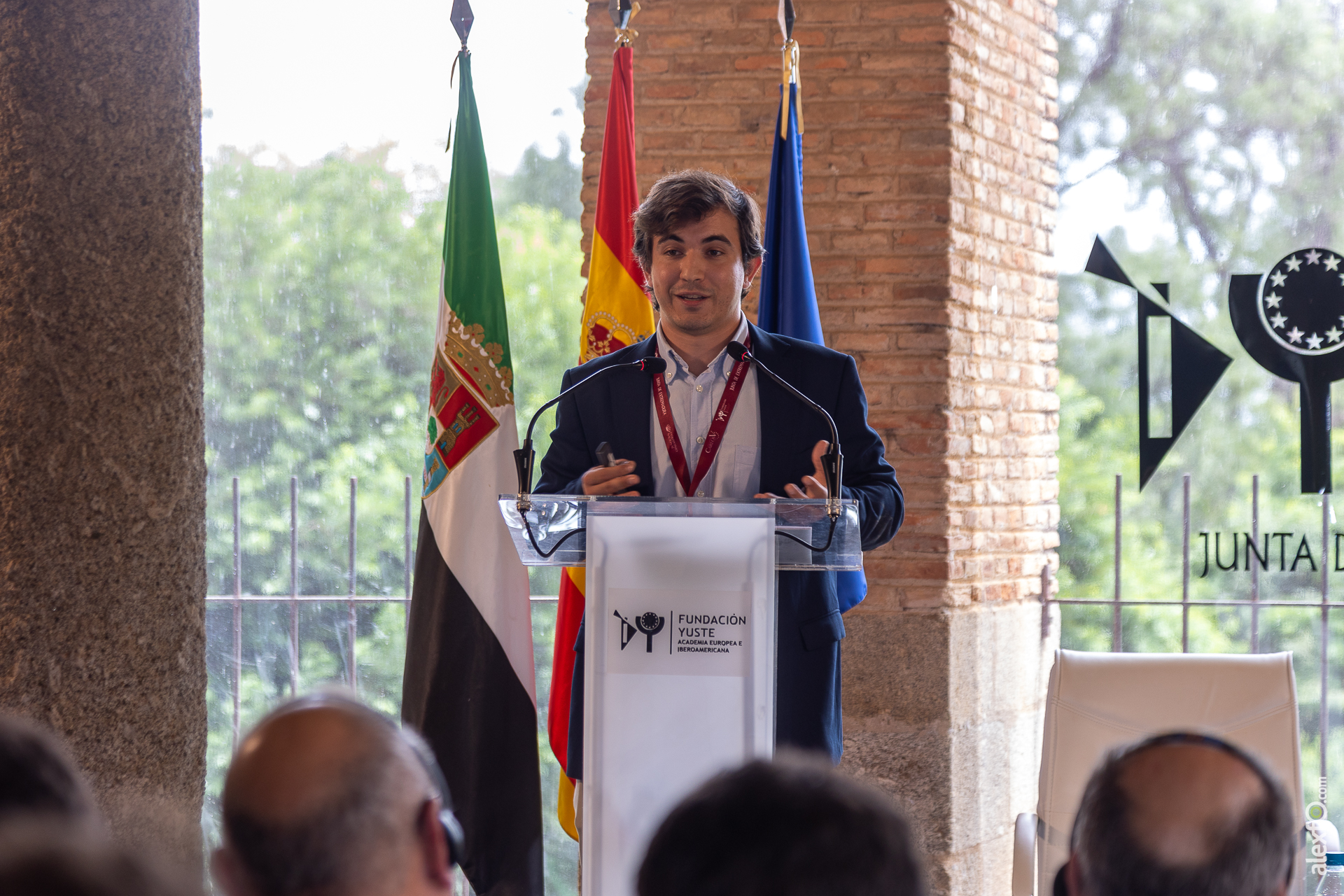
Europaeum Scholar, Amós Del Castillo Petidier (UCM)
San Jerónimo de Yuste, Valencia and Nantes
Amós Del Castillo Petidier (UCM) presented the paper, Community Funds and Mega-Events in Southern Europe. A Historical Approach to the Case of the Seville World Expo and the Athens Olympic Games at the Carlos V European Award Doctoral Seminar at the Monastery of San Jerónimo de Yuste, 23-26 June 2025. In July, he also attended Universitat de València’s El mundo contemporáneo desde el siglo XXI, Balance y perspectivas, where he presented the paper, Megaeventos y Europeización desde abajo. Análisis de la influencia europea en la Expo ’92 de Sevilla, la Expo ’98 de Lisboa y los JJ.OO. de Barcelona desde la perspectiva regional y local (1992-1998).
Later in the summer, Amós presented the paper, The EU at the Games: A Historical Analysis of the European Union’s Involvement in the Barcelona ’92 and Athens ’04 Summer Olympic Games at the 10th anniversary conference of RERIS (Réseaux d’études des relations internationales sportives) at University of Nantes, 15-16 July 2025.
Tarragona and Chiang Mai
Julia Furtado (Luxembourg), pictured at the start of this article, presented the paper, Young Renters Under Pressure: The Unequal Economics of Wellbeing in Europe at both the 5th Workshop on Rent Control in Tarragona, Spain, 19-20th June 2025 and the International Conference on Public Policy (ICCP7) in Chiang Mai, Thailand, 01-04 July 2025.
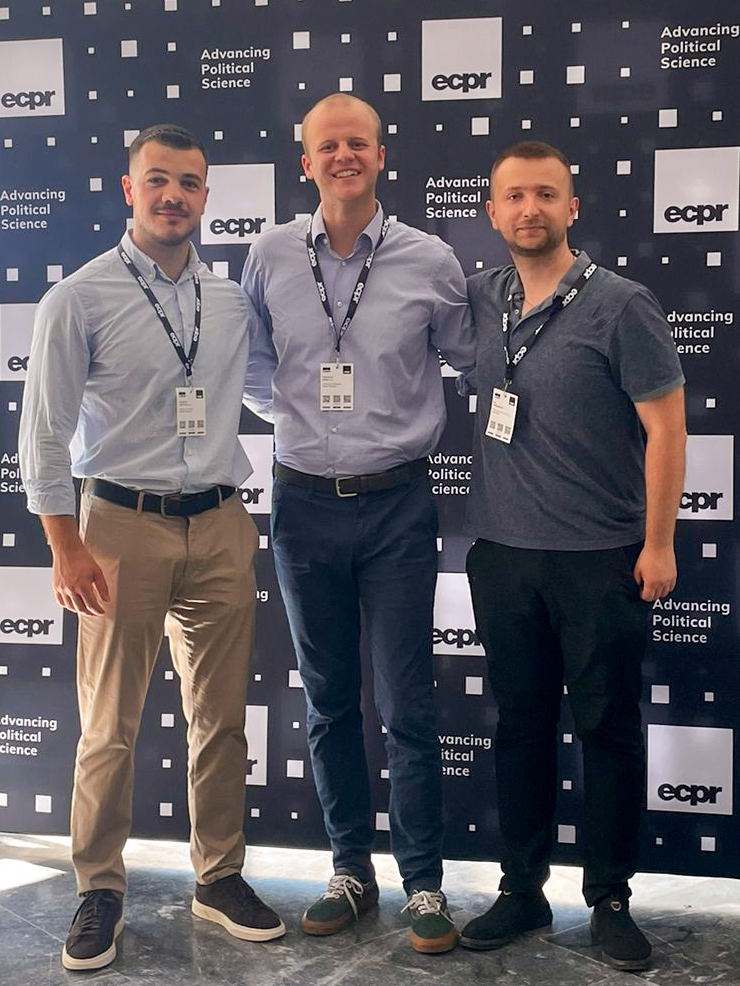
Europaeum Scholars, Kledian Myftari (Charles / Copenhagen), Ihor Moshenets (CEU) and Francesco Nasi (Bologna)
Thessaloniki
At the European Consortium for Political Research General Conference at Aristotle University of Thessaloniki, Kledian Myftari (Charles/Copenhagen) examined Albania’s model of multi-religious coexistence and how the Prime Minister’s proposal for a sovereign Bektashi microstate challenges its secular foundations. He presented the paper, The Experience of Multi-Religious Co-existence and the Idea of a Muslim State in Albania: Enriching or Hindering the Consensual Tradition?.
Also at the same conference, Ihor Moshenets (CEU) presented three different papers drawing various theoretical implications from the analysis of various policy decisions under the time of EU Green Deal, as well as exploring their wider international impact. These papers were entitled Internal Coherence vs External Influence? Managing Institutional Overlap in EU’s Changing Approach towards Energy Charter Treaty; Sanction Regimes as Global Governance Complexes: the Case of Post-2022 EU Energy Sanctions Against Russian Federation; Russo-Ukrainian War in Knowledge Production Strategies of European Environmentalist Movement.
Kledian and Ihor were joined in Thessaloniki by Francesco Nasi (Bologna), who delivered the paper, Digital Crowdsourcing for Political Parties: Opportunities, Challenges, and Power Dynamics. The paper examined digital crowdsourcing for political parties and focused on the case study of Volt Europa and the Eurosense platform.


